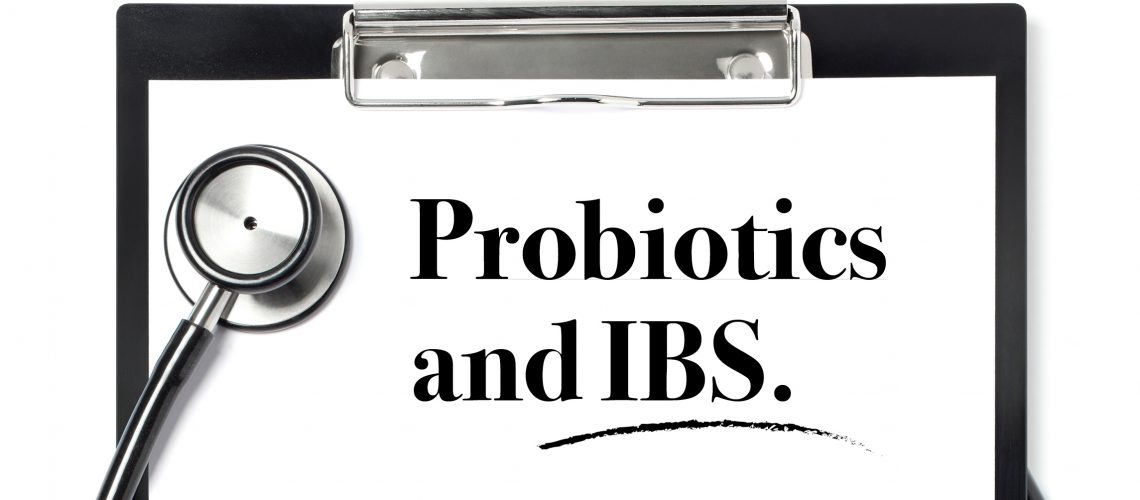Digest This
Click on the topics below to learn how probiotics can improve your digestive health, naturally.

Probiotics and Irritable Bowel Syndrome (IBS)
- @drHoberman
- Disease, Probiotics
Irritable bowel syndrome (IBS) is the number one reason patients are referred to gastroenterologists.
IBS is a chronic disorder that creates a variety of painful symptoms, including diarrhea, cramping, bloating, gas, constipation and other abdominal pain.
Anywhere from 10-20 percent of Americans commonly experience IBS symptoms (usually younger than age 45). Typically, IBS affects twice as many women as it does men and often begins during young adulthood.
Despite the ability of modern medicine to spot the symptoms of IBS, nailing down a culprit has been far more difficult.
Certainly, stress may be a trigger for IBS, given the role the gut-brain axis plays in connecting your intestines, emotions and brain. The kinds of foods and the amounts we consume (too many carbohydrates) can also be big problems. Ditto for alcohol.
Although there’s no definitive tests for IBS, your gastroenterologist will want to perform some of these procedures to help him/her rule out other health problems.
- Blood work
- Stool culture
- Colonoscopy or upper GI endoscopy
- Hydrogen breath test
Another aspect that makes treating this disease really tricky: There’s different subtypes of IBS: Diarrhea-predominant (IBS-D), constipation-predominant (IBS-C) and alternating type (IBS-A).
And, IBS is a health problem that patients can switch from one subtype to another.
Treating a moving target
Many doctors will recommend some very basic lifestyle changes that may make a difference, especially if a patient’s IBS symptoms are mild:
- Avoiding high-gas foods and gluten.
- Eating more fiber and low FODMAP meals (with supervision from a physician or dietician.
- Getting more sleep and exercise.
- Reducing stress as much as possible.
(If some of these lifestyle changes sound familiar to you, health care professionals recommend them for fighting the obesity epidemic too.)
Physicians can prescribe medications, but shifts in an IBS patient’s subtype make that problematic too. For example, one drug for IBS-D — alosetron (Lotronex) — is recommended only for women with IBD-D and with special precautions and warnings.
Should stress also play a role, your doctor may want to prescribe an antidepressant drug, like a selective serotonin reuptake inhibitor (fluvoxamine or sertraline), an older tricyclic drug (amitriptyline or imipramine) or an antispasmodic drug (dicyclomine).
The probiotic approach
Out of the many non-drug therapies medical experts cite to control IBS, however, probiotics always seems to rise to the top of the list because they are among the safest ways to treat this condition effectively.
Why? Probiotics are much more versatile in the ways they work in your body, compared to a drug.
They do a great job in maintaining the motility in your intestines and lessening constipation, a key symptom of IBS.
And, probiotics are a safe, effective means to treat diarrhea and reducing its duration.
When emotions and stress begin to manifest in problems with your gut-brain axis, probiotics can be a difference-making tool.
But not just any probiotic will do.
The evidence
A very recent review of studies appearing in the medical journal Nutrients that examined controlled trials over the past five years underscored the effectiveness of multi-strain probiotics in relationship to IBS.
Of the 11 studies that met the final cut for the review, seven of them reported significant improvements among IBS patients taking probiotics. But that’s not all.
Eight of those 11 trials evaluated how IBS patients benefit from taking a daily multi-strain probiotic. When IBS patients were given multi-strain probiotics for eight weeks or more, the benefits were far more distinct, especially over a long period of time.
Probiotics containing a single species of bacteria may be good for treating one specific problem, but not several health challenges like those that occur with IBS.
Your gut contains a diverse accumulation of bacteria, 10 times more than the cells in your body (in the tens of trillions) and more than 1,000 different species.
That’s why a multi-species probiotic is built to be a more effective way to treat the symptoms associated with IBS and give your body’s immune system a healthy boost.
Taking a probiotic with 10 strains of beneficial bacteria from the Lactobacillus and Bifidobacterium families (plus a prebiotic that feeds the bugs in your gut) like EndoMune Advanced Probiotic can be a safer, better alternative for treating IBS that may help you avoid taking a prescription drug too.
There Is An Endomune Probiotic For Every Lifestyle
-
EndoMune Metabolic Rescue
$44.95 -
EndoMune Advanced Probiotic
$42.95 -
EndoMune Companion Pack
$112.93








